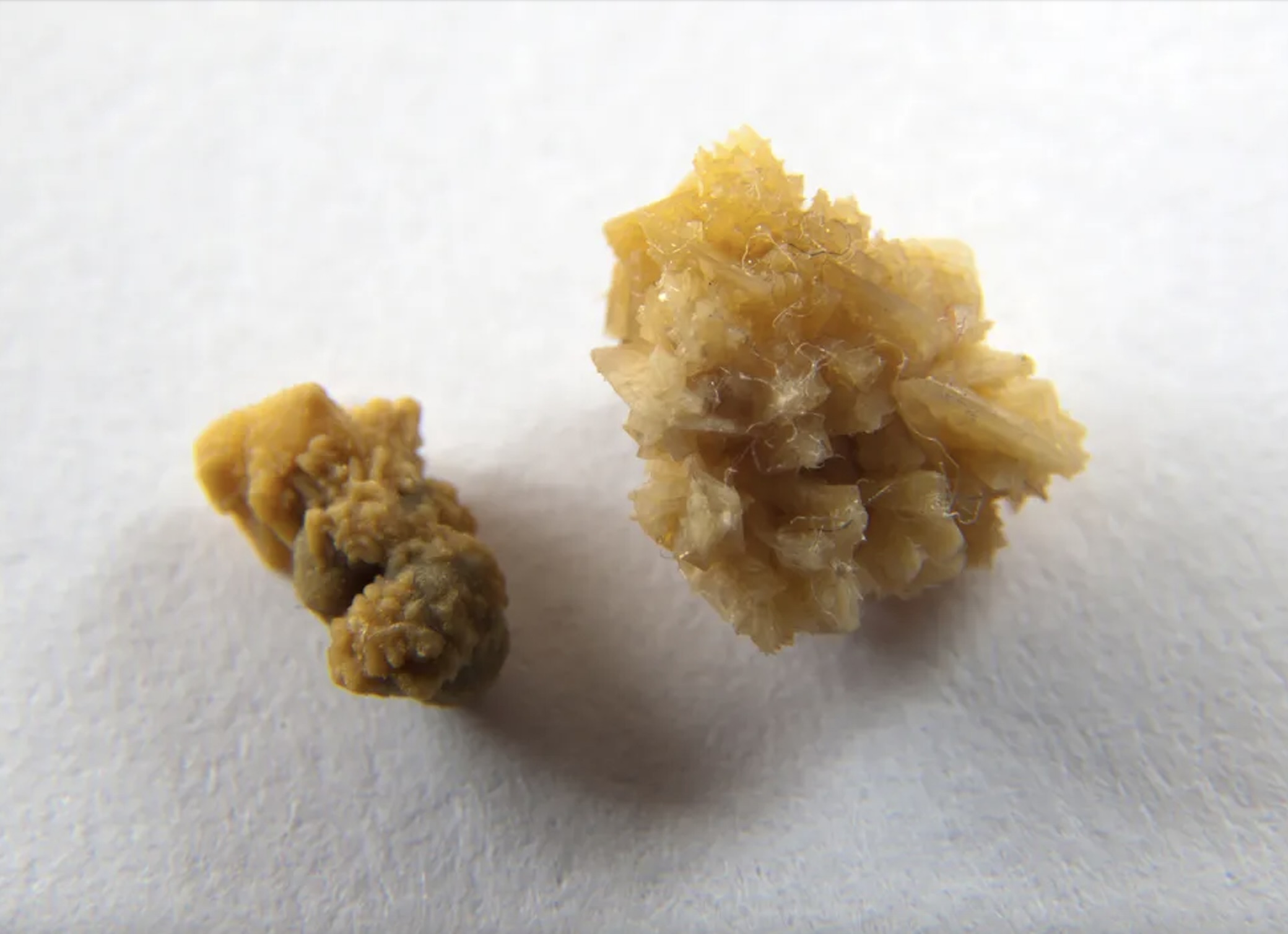What are the symptoms of ureteral stones?
Ureteral stones, also known as ureteral calculi or kidney stones, can cause a range of symptoms, including:
- Severe Pain: Intense pain in the lower back, side, or abdomen, often described as sharp or cramping. The pain may radiate to the groin or inner thigh.
- Painful Urination: Discomfort or pain during urination.
- Hematuria: Blood in the urine, which may cause the urine to appear pink, red, or brown.
- Frequent Urination: Increased need to urinate, sometimes with urgency.
- Nausea and Vomiting: Feelings of nausea or actual vomiting, often accompanying severe pain.
- Cloudy Urine or Foul-Smelling Urine: The urine may appear cloudy or have an unpleasant odor.
- Difficulty Passing Urine: A reduced ability to urinate or a feeling of incomplete bladder emptying.
- Fever and Chills: If there is an associated infection, symptoms may include fever and chills.
- Pain Relief Positioning: Pain may be alleviated temporarily by changing positions or moving around, as the stone shifts within the ureter.
What are the causes of ureteral stones?
Ureteral stones, also known as kidney stones or renal calculi, can form due to a variety of causes:
- Dehydration: Insufficient fluid intake can lead to concentrated urine, which increases the likelihood of stone formation.
- Diet: High intake of certain substances, such as calcium, oxalate, or uric acid, can contribute to stone formation. For example, a diet high in oxalate-rich foods (like spinach and nuts) or excessive salt can be a risk factor.
- Genetic Factors: A family history of kidney stones can increase the likelihood of developing them.
- Medical Conditions: Certain conditions, such as hyperparathyroidism, gout, and certain metabolic disorders, can lead to an increased risk of stone formation.
- Obesity: Being overweight or obese is associated with an increased risk of developing kidney stones.
- Medications: Some medications, including diuretics and calcium-based antacids, can contribute to stone formation.
- Infections: Urinary tract infections can sometimes lead to the formation of struvite stones, which are a type of kidney stone.
- Medical Procedures: Certain medical conditions or procedures that affect the urinary tract, such as urinary tract infections or conditions that obstruct urine flow, can increase the risk of stone formation.
What is the treatment for ureteral stones?
The treatment for ureteral stones depends on the size of the stones, their location, and the severity of symptoms. Here are common approaches:
- Increased Fluid Intake: Drinking plenty of fluids helps flush out small stones and may aid in their passage.
- Pain Management: Over-the-counter pain relievers or prescribed medications can help manage pain and discomfort.
- Medical Expulsion Therapy: Medications such as alpha-blockers or calcium channel blockers can help relax the muscles in the ureter, facilitating the passage of stones.
- Extracorporeal Shock Wave Lithotripsy (ESWL): This non-invasive procedure uses shock waves to break stones into smaller pieces that can pass more easily through the urinary tract.
- Ureteroscopy: A thin, flexible tube (ureteroscope) is inserted through the urethra and bladder into the ureter to remove or break up the stones. This procedure may be used if the stones are too large to pass on their own or if other methods are not effective.
- Percutaneous Nephrolithotomy: For very large stones or those that do not respond to other treatments, a small incision is made in the back to remove the stones directly from the kidney.
- Surgical Intervention: In rare cases, surgery may be required to remove stones, especially if other treatments are not effective or if the stones are causing significant complications.
- Addressing Underlying Conditions: Treating underlying conditions, such as metabolic disorders or urinary tract infections, can help prevent the recurrence of stones.

Leave a Reply
You must be logged in to post a comment.